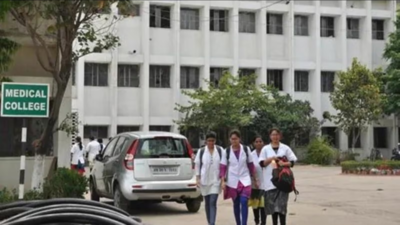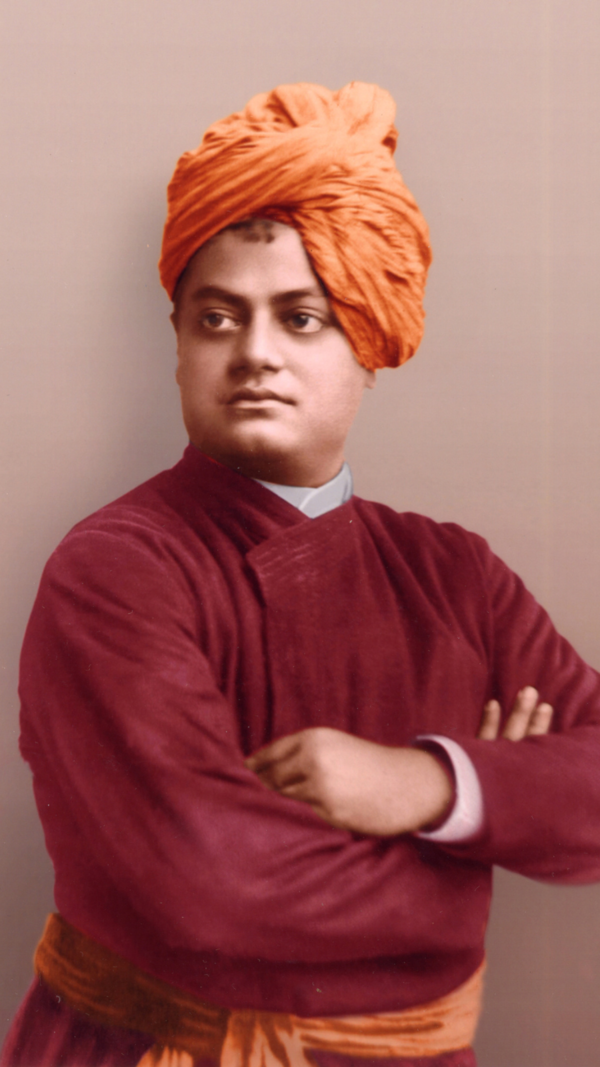- News
- Education News
- News
- UP medical aspirants converting religion to secure MBBS seats: A look at NEET UG admission criteria around minority reservation rules
Trending
UP medical aspirants converting religion to secure MBBS seats: A look at NEET UG admission criteria around minority reservation rules
Authorities in Meerut, Uttar Pradesh, are investigating over a dozen medical aspirants who allegedly converted religions to gain admission to minority medical colleges. This incident potentially violates the Unlawful Conversions of Religion Act of 2021. The Directorate of Medical Education has directed a thorough probe and verification of all submitted certificates.

Representational
A startling case has surfaced in Meerut, Uttar Pradesh, where more than a dozen medical aspirants allegedly underwent religious conversion to secure admission to minority medical colleges. This troubling incident, now under investigation by local authorities, is believed to contravene the provisions of the Unlawful Conversions of Religion Act of 2021 (UPPUCRA-2021).
A total of 20 candidates came under scrutiny for allegedly using religious conversion certificates to secure an MBBS seat, circumventing the law. Of these, seven admissions were cancelled by the counselling board, while seven others voluntarily withdrew. The remaining six candidates, all from outside Uttar Pradesh, have had their documents forwarded to their respective states for verification before any legal action is taken. In response to the incident, the Directorate of Medical Education has instructed the counselling committee to thoroughly investigate the matter and verify the certificates submitted in various admission categories.
Admissions to all undergraduate medical and dental courses across India are primarily conducted through NEET (UG). Various categories of seats are available, including those under the All India Quota, state government quotas, central institutions, deemed universities, and private medical or dental colleges. This system also includes seats under management and NRI quotas, with some institutions specifically catering to minority communities. Minority quotas in private, unaided, and aided minority medical colleges are also a crucial component of the admission process.
Minority reservation criteria for NEET UG admissions are based on a complex interplay between state and central government regulations. The status of a minority community varies by state, and a separate list is maintained for All India Quota seats by the central government. State-specific criteria may also apply, requiring candidates to have attended a minority college or institution for part of their education to qualify for the reserved seats. This ensures that both regional and national considerations are balanced in the distribution of these quotas.
The process for securing a seat under the minority quota in NEET counselling can differ based on the type of counselling. State counselling is typically centralised and managed by state authorities, where minority quota seats are part of the broader allocation process. Conversely, certain private or minority-run institutions conduct their own college-based counselling, requiring candidates to apply directly to the institution to claim a minority seat. Candidates participating in either of these processes must meet the specific eligibility requirements, including the submission of valid minority status certificates.
For minority quota admissions, a separate merit list is created, considering NEET scores and other factors such as qualifying exam marks in some states. The selection process usually involves multiple rounds of counselling to fill any remaining seats. Upon selection, candidates must provide all relevant documentation, including NEET scores, educational certificates, and proof of minority status.
In cases where an institution claims minority status, the application for a Minority Status Certificate (MSC) must first be submitted to the authority designated by the state government, as outlined by the National Commission for Minority Educational Institutions. This process is critical for ensuring the proper distribution of seats under the minority reservation policy in medical admissions.
The individuals involved hail from various regions, including several districts in Uttar Pradesh, New Delhi, and Maharashtra. According to media reports, the Uttar Pradesh Home Department and other relevant authorities are aware of the ongoing probe.
A total of 20 candidates came under scrutiny for allegedly using religious conversion certificates to secure an MBBS seat, circumventing the law. Of these, seven admissions were cancelled by the counselling board, while seven others voluntarily withdrew. The remaining six candidates, all from outside Uttar Pradesh, have had their documents forwarded to their respective states for verification before any legal action is taken. In response to the incident, the Directorate of Medical Education has instructed the counselling committee to thoroughly investigate the matter and verify the certificates submitted in various admission categories.
NEET UG Admission Criteria and Minority Reservation Explained
Admissions to all undergraduate medical and dental courses across India are primarily conducted through NEET (UG). Various categories of seats are available, including those under the All India Quota, state government quotas, central institutions, deemed universities, and private medical or dental colleges. This system also includes seats under management and NRI quotas, with some institutions specifically catering to minority communities. Minority quotas in private, unaided, and aided minority medical colleges are also a crucial component of the admission process.
Institutions such as AIIMS and JIPMER conduct their own admissions under specific categories, while the Medical Counselling Committee (MCC) oversees the process for central institutions and deemed universities.
Minority reservation criteria for NEET UG admissions are based on a complex interplay between state and central government regulations. The status of a minority community varies by state, and a separate list is maintained for All India Quota seats by the central government. State-specific criteria may also apply, requiring candidates to have attended a minority college or institution for part of their education to qualify for the reserved seats. This ensures that both regional and national considerations are balanced in the distribution of these quotas.
What is the Application Process for Minority Quota in NEET Counselling
The process for securing a seat under the minority quota in NEET counselling can differ based on the type of counselling. State counselling is typically centralised and managed by state authorities, where minority quota seats are part of the broader allocation process. Conversely, certain private or minority-run institutions conduct their own college-based counselling, requiring candidates to apply directly to the institution to claim a minority seat. Candidates participating in either of these processes must meet the specific eligibility requirements, including the submission of valid minority status certificates.
For minority quota admissions, a separate merit list is created, considering NEET scores and other factors such as qualifying exam marks in some states. The selection process usually involves multiple rounds of counselling to fill any remaining seats. Upon selection, candidates must provide all relevant documentation, including NEET scores, educational certificates, and proof of minority status.
In cases where an institution claims minority status, the application for a Minority Status Certificate (MSC) must first be submitted to the authority designated by the state government, as outlined by the National Commission for Minority Educational Institutions. This process is critical for ensuring the proper distribution of seats under the minority reservation policy in medical admissions.
End of Article
FOLLOW US ON SOCIAL MEDIA











